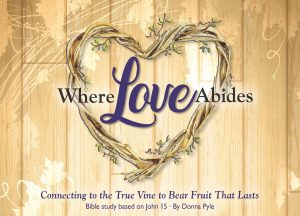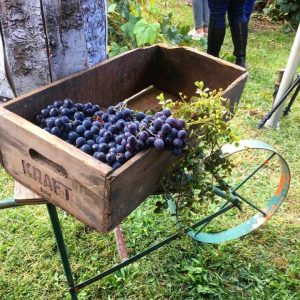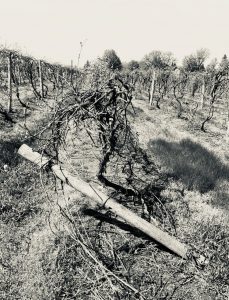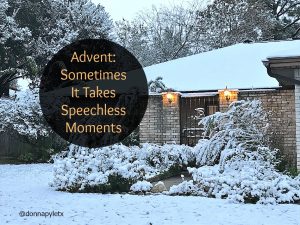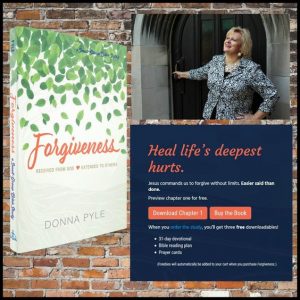My Texas home contains several gardens that require constant care. The ten-year old angel trumpet plant grows taller than my roof each year and produces beautiful ten-inch, pale pink trumpet-shaped flowers several times each year.
However, such faithful production would decline if I neglected to prune it back to only two feet tall each spring.
Gardeners and farmers understand the importance of pruning.
Since believers are planted in God’s vineyard, it means that we must submit to the Vinedresser’s pruning. Grapevines in vineyards naturally grow wild, so they are pruned and trained to the trellis structure in order to produce optimal fruit. When we abide in the true Vine through the power of the Holy Spirit, our Savior shapes us through His Word.
Such careful, loving pruning is designed to produce abundant fruit.
Although pruning does not feel good at the time, we trust that God has our best interest at heart. Such knowledge soothes the wounds brought about by pruning, so that we can fulfill God’s divine design.
In God’s vineyard, there are two kinds of branches: (1) fruit-bearing branches that are pruned to bear more fruit, and (2) non-fruit-bearing branches that are cut off, dried, and burned.
Although pruning means purging useless or superfluous shoots from a vine or tree, it also means to cleanse from filth and impurity.
As you take a quick survey of your current circumstances, activities, and interests, what might God need to prune in your life to bring about better fruit?
For example, when God repeatedly affirmed my calling to write Bible studies and teach from His Word, I dove in with unparalleled gusto. I spent considerable time studying His Word, filling countless journals with notes, and taking online classes to study the Bible’s original languages. I read mountains of commentaries, listened to sermon podcasts, and much more.
But I mistakenly thought that I could fit all of those activities into my life without purging anything else. Even though those new endeavors for the Lord produced many devotions, blog posts, Bible studies, and eventually books, my fruit-bearing branches were becoming exhausted. However, I kept on plowing ahead (pun intended) because I truly love the calling that God has placed in my life.
Then one day, the Vinedresser—without consulting this lowly branch—began pruning activities and commitments from my schedule that He knew were “sucker branches” to His plan for my spiritual growth and fruitfulness.
At first, I objected and tried to convince God that I was superwoman. I wanted to prove that I could not only do it all, but could slam dunk it while wearing high heels and singing Kumbaya.
My objections only proved my spiritual immaturity.
As soon as I began trying to prove that I knew better than God, a four-month season of what I call my “discipline blessings” began. Sinus and upper respiratory infections hit me hard and non-stop, which resulted in “forced” rest. Since I could hardly breathe, function, or concentrate for four months, hours in bed replaced exhaustion with repentance over my hardheadedness. In other words: I experienced discipline from above.
I look back upon that season of “discipline blessings” and thank God for His wisdom. The lessons that He taught me during those four months made me realize just how much God loves this stubborn branch and His vineyard.
Although my four-month disciplining season was uncomfortable at best and heartbreaking at worst, God drew me closer to Him during that time through prayer to discern the plan that He continues to unfold for my future.
Pruning sometimes hurts. But it is a necessary process for God to nurture and produce the best fruit for an abundant harvest.
If you have been a branch in God’s vineyard for any length of time, you understand that pruning often translates into pain and hardship. That’s not because God enjoys seeing His children suffer, but because He knows it needs to take place for future growth.
God never promised that being connected to the Vine would mean that life would be fine as wine.
By God’s grace we put one foot in front of the other while He prunes.
We grow.
He prunes.
We grow.
He prunes.
It’s a lifelong, life-giving cycle in His vineyard. Our Lord and Savior is fully aware of your circumstances. ABIDE IN HIM. Stay connected.
His plan for you is perfect and incredible.
Trust Him.
Brand new 8-week DVD Bible study series releasing July 5, 2018:
